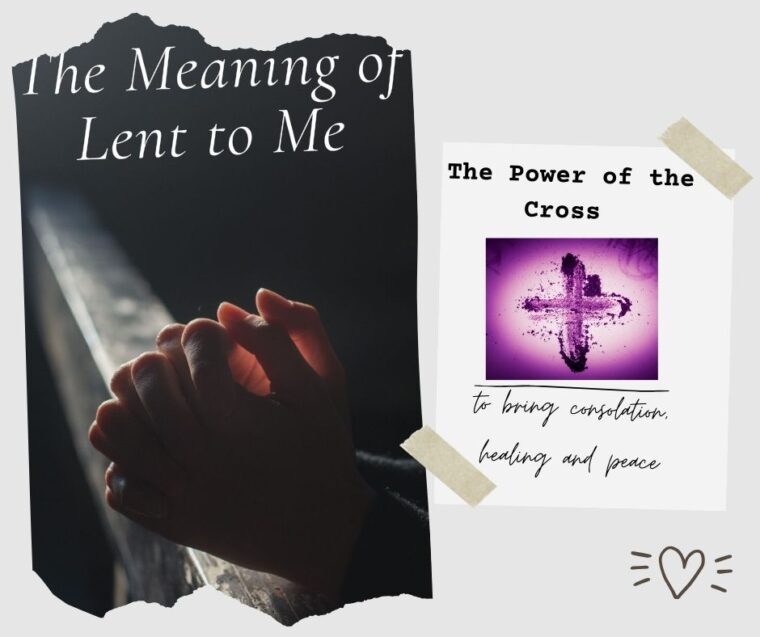For forty days each year the Church, through the season of Lent, invites Christians to take stock of their lives, and through taking part in prayer, fasting and almsgiving make a positive step forward in their relationship with God. In doing so they imitate Jesus, who spent forty days of prayer in the desert preparing for his public ministry. When Jesus was tempted by the devil He said in reply, “It is written: ‘One does not live by bread alone, but by every word that comes forth from the mouth of God.’” (Matthew 4:4)
Lent has always been meaningful for me and a significant part of my Christian life. I had a very simple faith as a child and Lent helped me grow in that faith. My parents brought me to Daily Mass and we were encouraged to take part in some small act of sacrifice; such as giving up sweets and chocolate and giving money to Trócaire, an Irish charity which strives to overcome the challenges of poverty and injustice in the developing world.
Taking part in the Stations of the Cross was a devotion which helped me think of the suffering of others. Pondering the Cross also helped me to find consolation and peace in asking Jesus for help with my own struggles and difficulties. I saw the Cross as a symbol of hope, that in Jesus, hope triumphs over sadness. Death is not the end, Jesus is risen. As a young adult I took more ownership for my own faith and grew in a deeper understanding of the love and mercy of God, particularly through experiences of youth ministry.
I made many mistakes and sometimes I felt I was living superficially and not being true to my faith. Superficial pursuits didn’t bring me interior peace and my longing for more me led to give a year of my life to God, attending the Emmanuel School of Mission in Rome. That year gave me a solid foundation in my life and showed me how to put God at the centre. Through the contemplative prayer of Adoration and receiving God’s forgiveness through the Sacrament of Reconciliation for the wrongs of my life, the things that I’d done I was ashamed of, I was able to make a fresh start in life.
Much of our ministry was at the Centro San Lorenzo, just outside St. Peter’s Square – the home of the original World Youth Day Cross. Praying at this large wooden cross, 3.8 metres high helped me to recognise that Jesus loves me for who I am and that there are no conditions to his love. I learned to accept myself in my weaknesses; to forgive myself, to let go of the past, and to strive to forgive those who have hurt me. Forgiving someone isn’t always easy, particularly when they have hurt you a lot, but I learned that is the only way to experience real inner peace.
Through my journey I have learnt that while struggles are part of life, the most important thing is to keep the faith, to persevere, and to never give up. When I was 20 I was diagnosed with bipolar disorder. While living with a mental illness presented me with new realities such as taking medication and needing to monitor and balance my engagements, there have been lots of positives such as the great support I received both psychologically and spiritually, which gave me a desire to live life to the full.
I believe that holding onto faith helps Christians to have hope during trials and adversity, and ultimately belief in the eternal life of endless happiness in heaven. Each of us has a cross to carry in life and the Christian community can support one another in solidarity, prayer and acts of charity. Lent is a particular time of grace which can help believers refocus on the wonderful gift of faith. In my life this faith has helped me to helped me navigate the challenges I experienced such as mental illness, trauma, pain and loss.
My faith in Jesus Christ sustained during those times and has given me great consolation, healing and peace in my journey of life thus far. I identify with Consultant Psychiatrist and Professor of Psychiatry at UCD Patricia Casey who stated that “Religion may allow people to attach a ‘purpose’ or meaning, to their suffering”. She explained that “some draw strength from their specific belief in the love of Christ who Himself suffered and understands their needs”.[1]
[1] Professor Patricia Casey, The psycho-social benefits of religious practise (Dublin: The Iona Institute, 2009), p. 30 in, <https://ionainstitute.ie/wp-content/uploads/2014/11/Religious_practice-1.pdf>.

